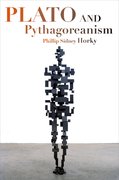My friend Josh Landy at Stanford has, with characteristic pizzazz, demolished Girardian hermeneutics in a recent article (published in the online journal Republic of Letters). I encourage everyone to take a look at it: whether you agree with Landy’s arguments or not, it is laugh-out-loud good (notice that I did not use the acronym: now that I’m living in the UK, where acronyms multiply like rabbits, I refuse to use them except for business purposes).

Girard and Material Monism
I met Girard only once, at Stanford, and I would tend to agree with Landy’s characterization. He did betray a lack of detailed knowledge and sensitivity to nuance in his reading: when he spoke about the Dionysiac aspect of Ancient Greek culture, he used Euripides’ Bacchae in a perplexingly straightforward way, as though Bacchae were, simply put, an evidentiary means by which one could induce broader general traits of the ‘Ancient Greeks’ and obtain an objective grounds for dismissal of Greek ‘immorality’. He obviously knew nothing about, for example, the material evidence of Bacchic-Dionysiac communities (e.g. from burials) or textual evidence (e.g. from the Derveni Papyrus) which complicates the story much further. Hmmphh. It always struck me as odd that, while, as Landy notes, Girardian interpretations are meant to be ‘generative’, they are strikingly reductive at the same time. See above about acronyms, which, too, generate without limit (if you doubt this, come to the UK), but often reduce the content to something easy to recognize, if virtually impossible to explain (and possibly obscuring what lies underneath). Landy closes the article by comparing Girard’s ‘scientific’ approach to literature with material monism, eliciting the ghost of Thales.
My only real disagreement with Landy lies in his dismissal of Kill Bill 1. The aristeia scene at the end is simply uncanny. And if we’re forced to take sides…Cindy Crawford any day of the week.


